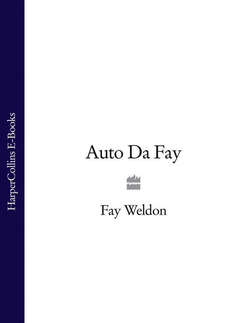Читать книгу Auto Da Fay - Fay Weldon - Страница 16
Convalescent
ОглавлениеWhen I came out of hospital my mother said my father had gone to the North Island to look for a job. North! The island I had never seen. That was where the excitement and energy lay, I was convinced. It was the land which contained my father, where the weather got warmer with every mile you travelled, where I had never been. Further south and all was bleak and next stop the South Pole, where there was nothing but penguins. I was increasingly awed by the map. How vast the globe was, and how proud I was to be British: why, a whole third of the nations were coloured red, which meant we governed it. The disgrace of being a homie was balanced by the specialness of being English. But how far away we were from the rest of the world! I knew only too well, because of the time that lay between my parents’ coming and going, what distance meant. You measured it in days and weeks, not miles.
School was on hold for me, while I recuperated. I managed to forget about it. One Sunday afternoon Jane and I were sent out to play in Cranmer Square. Frank had come south. He was to take us out for the afternoon; we were to drive to visit the black swans which lived on a lake outside the city. No, he was not coming into the house, the landlady would not like it, we were to wait for him outside. We had ribbons put in our hair. I had the check dress Jane had worn for the Rita Angus portrait, which fitted me by now. There was no choice. We were given no option as to what to wear. There wasn’t much to choose from, anyway. School uniform and Sunday best and that was about all.
Jane’nFay went out to play. She skipped and I played sevens. We didn’t speak much. We improved our skills while we waited. I could read what was in most people’s heads but seldom these days what was in hers. I thought it might be something to do with the colour of her eyes. She had dark, dark brown eyes like my mother’s, and mine were bright blue like my father’s. I adored her and felt apologetic, the cuckoo chick in her nest, growing larger and larger, wearing her cast-offs, and resented for something I couldn’t help, for being there. I daresay most younger siblings feel like this.
Time was getting on. No sign of a father. I wanted Jane to go back inside to ask what the time was, but she wouldn’t. I went. It was three o’clock. I played more sevens but kept dropping the ball: Jane kept stepping on the rope. In the next hour hope and disappointment fought it out, and minute by minute disappointment gained ground until there was no hope left. The sun sank lower across Cranmer Square: I came to the understanding that I was not central to the universe, and that no amount of wishing and hoping would twist it to my convenience, and the sun would just go on sinking.
Around four-thirty my mother called us in and said, ‘Well, he’s not coming, is he?’ in the tone of one who was disappointed but not surprised. I sat down to read Ferdinand the Bull yet again, practising insouciance. I did not like people being sorry for me. Just sit down and smell the flowers, like Ferdinand. I have, and I date it to that day, become expert at receiving bad news. I keep my face still, gain time to reassess my situation, to retreat or advance as required. Grit the teeth, face a changed world, go back afterwards to mop up the emotion. I was more like a New Zealander than a homie in this, and have stayed so. New Zealanders go into danger gear at the drop of a hat: you don’t see them emoting all over the place. That’s why they run Aid Agencies and such like: they don’t panic.
Later my mother said he’d had flu and hadn’t been able to come. I didn’t quite believe her. I thought it was probably something to do with Ina, or Jean, or Helen. Be that as it may, he had gone back to the North without stopping by.
We left the boarding-house. I was so pleased I tried to set the magpie free of its chain: my mother said it only attacked because it was unhappy. But it preferred its imprisonment: it wouldn’t let me near it. I had rather hoped for a bungalow like other people had but my mother had found us rooms above a disused stable in an old mews on the road out to Papanui. Poverty is a stubborn thing: you seldom escape it with one bound. But the great thing was that I no longer had to go to the Convent. I was to go to a school called Elmwood instead.
